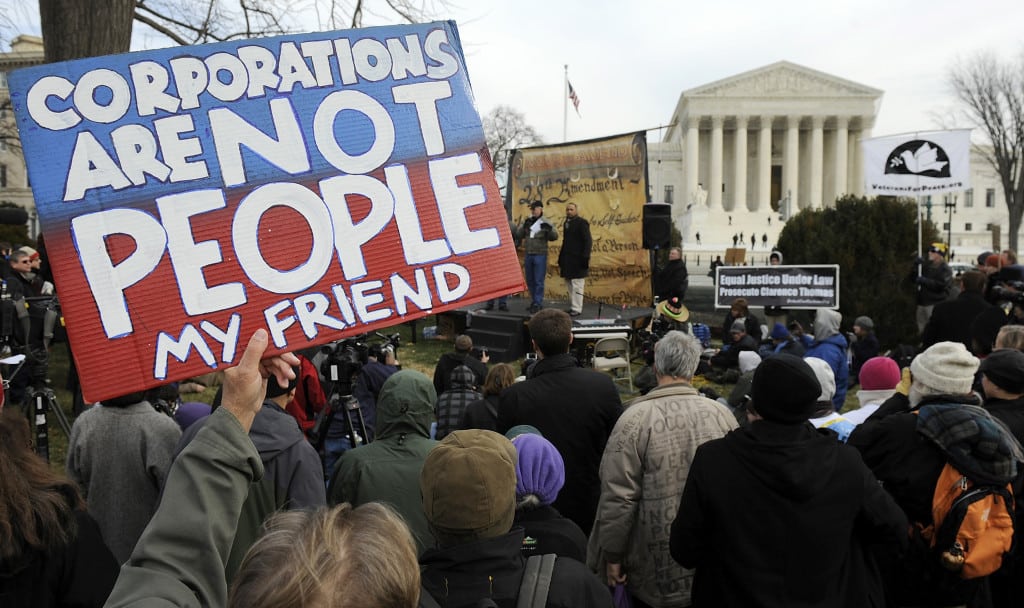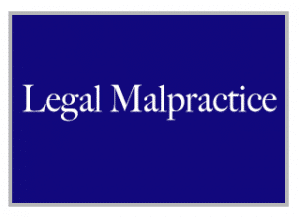In Citizens United v. FEC (2010) 558 U.S. 310 [130 S.Ct. 876, 175 L.Ed.2d 753, 22 Fla. L. Weekly Fed. S. 73], (Citizens United), a divided United States Supreme Court invalidated federal election law restrictions on the political speech of corporations, holding that a speaker’s identity as a corporation, as opposed to natural person, could not […]
Previously we reported: County Granted Summary Judgment On Dangerous Condition Of Public Property Claim.
A husband and wife were injured in an auto accident and brought an action against another motorist as well as the county for dangerous condition of public property. The complaint alleged the other driver was unable to see the plaintiffs as they pulled out from one road onto another. The county moved for summary judgment based upon design immunity and the plaintiffs opposed, contending the county disregarded its own methodology regarding sight distance.
Fresh Organic Food Labeling Action Is Not Preempted.
Defendant is a large herb-growing operation with multiple farms throughout California. Most of the farms use conventional growing methods, but one of them uses organic processes. Nonetheless, when it comes time for distribution, defendant packs the conventionally and organically grown herbs in the same packing and labeling facility, processes them together and labels them “Fresh Organic.”
Miranda Rights Eroded Again: Unusual Case All The Way Around.
Joseph H., age 10, woke up early one morning and shot his father in the head as he slept on the sofa. Joseph was a difficult child. From the time he was three years old, his paternal grandmother could not babysit him because she could not control his outbursts.
Previously We Reported: Insurance Company Can Require Insured To Obtain Its Consent Before Assigning Interest In Policy.
One Fluor Corp. assigned its rights under liability policies to another Fluor Corp. when they underwent complex corporate restructuring. In a declaratory relief action, the liability insurer objected that its approval was not given pursuant to a consent to assignment provision in the policy. Fluor contended the provision was void under an 1872 statute which […]
Previously We Reported: Legal Malpractice Statute Of Limitations.
Plaintiff hired a lawyer to represent her in litigation. After settlement, plaintiff sought a refund of unearned attorney fees she had advanced as the lawyer had written her a letter stating she had a credit balance of $46,321.85 and the invoice so reflected. When the refund was not forthcoming, she hired another lawyer to try […]
Summary Judgment Reversed By California Supreme Court.
The negligent driving of a third party motorist caused another car to strike a tree planted on a center median owned and maintained by a City. The collision resulted in death or injury to all the car’s occupants. Plaintiffs sued the City for a dangerous condition of public property. The City moved for summary judgment, […]
Payback To Insurance Company After It’s Ordered To Pay Cumis Counsel To Defend Its Insured, And It Claims Cumis Counsel Padded The Bills.
The question tackled by the California Supreme Court here is that after an insurance company is compelled by a court order to provide independent counsel to defend its insured in a third-party action pursuant to San Diego Federal Credit Union v. Cumis Ins. Society, Inc. (1984) 162 Cal.App.3d 358 [208 Cal.Rptr. 494], and the insurer […]
Once Emergency Lights Activated By Police, A Driver Is Considered Detained.
A Sheriff’s department received an emergency 911 call, reporting some people were fighting in an alley behind his home. The caller said he could hear screaming and one person had said, “the gun was loaded.” The caller stayed on the line, and shortly thereafter confirmed a squad car had arrived. As an officer drove along […]
Unconscionability Findings In Arbitration Agreements Still Possible In Other Than Class Action Waivers.
When the named plaintiff in a class action against a holding company purchased a car, he signed an arbitration agreement which contained a class action waiver. The trial court denied the defendant’s motion to compel arbitration, finding the class waiver unenforceable on the ground the California Legal Remedies Act [CLRA; Civil Code sections 1750-1784] declares the […]
- 1
- 2
- 3
- …
- 9
- Next Page »








